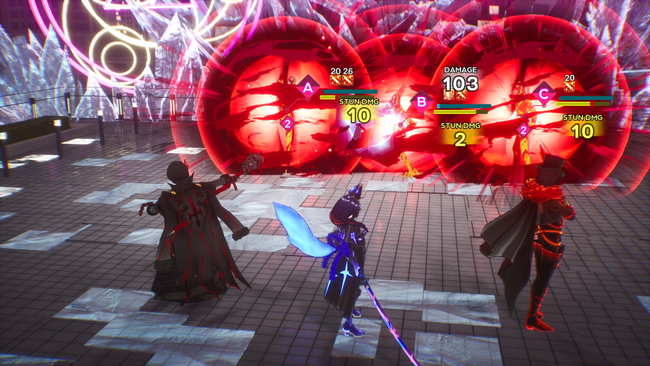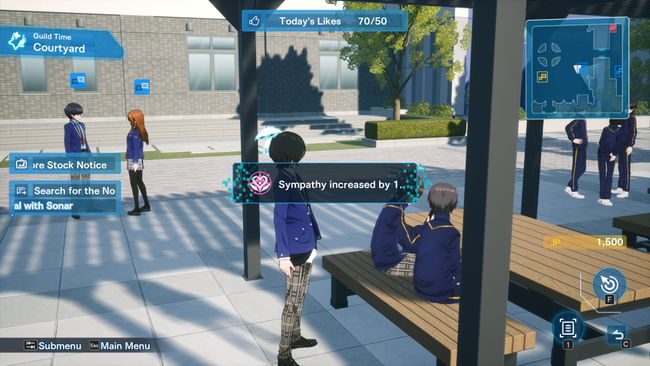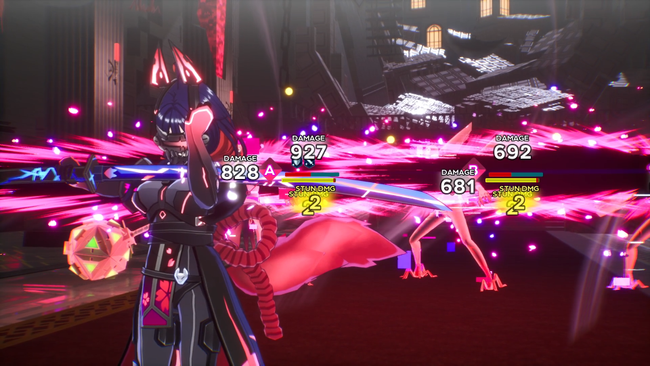
Varlet isn't just an RPG about your self-discovery, but Furyu's as well
Sitting down to play the latest Furyu RPG, Varlet, I didn't quite know what to expect. Whenever I've played a Furyu release in the last decade, it's been published through a separate company - Atlus, Aksys, NIS America, Spike Chunsoft; the point being, they've always felt like a wistful company, where you never really knew where their games would end up. With Varlet, things seem primed to change.
Varlet marks the start of Furyu self-publishing their titles in the west. While this doesn't have any impact on the game itself, it does bring with it a different vibe compared to the Furyu projects I've engaged with in the past. It's not just another "Furyu title", it's the title that the company felt fit to spearhead their introduction of their direct western presence as a games company.
Let me back up a bit; during this year's Anime Expo, we had the opportunity to sit down and play a bit of Varlet, and speak with the game's Producer Hideaki Ito. Varlet is a turn-based RPG, where players take control of a group of high school students as members of the Student Support Services, after the rise of an Mixed Reality social network known as "Johari" has lead to students increased desire for approval from their peers, and eventually some disappearing into "Glitches" in the system, manifesting from their twisted desires.

While it's far from a carbon copy, when asked about the game's inspirations Ito was far to shy away from the obvious. "I think when people first see the game's key images - well, the obvious comparison is Persona, right? I think it's fair to say that a lot, maybe not all, games developed in Japan are being inspired by Persona in one way or another these days. At least in some form."
While it's not surprising to hear, we were taken aback by how earnest the team is about their inspirations. Of course, by taking more than a cursory glance at Varlet it's clear that while Persona was clearly an inspiration, it's far more than a carbon copy, and has other inspirations elsewhere.
"Personally speaking, the game I took the most inspiration from when we've been working on the game has been Gunparade March." this was a tactical RPG published by Sony in Japan for the original PlayStation, which similarly to Persona had a focus around the balance between combat and school.
Similarly, Varlet is also separated into two distinct halves; moments where players explore their school and complete tasks, and moments where they dive into dungeons - Glitches - to protect their classmates. Your actions supposedly will impact your progression via what the team is calling the Triad System. Obviously we were unable to dissect how it works in practice during our short, 45 minute demo. What we could begin to grasp was the battle system.

Unlike Monark, Furyu's previous attempt at a similar concept, Varlet is a standard turn-based battle system without any Tactical RPG stylings. Instead, players are tasked with managing their actions on a timeline displayed on the left side of the screen; different actions take differing time to execute, and can impact the timeline in various ways. If an enemy is casting a special attack, an action that can interrupt that cast can be useful - if you can get it out in time. Another example relies on a party member, Noa, and her affinity as a Tank; grabbing aggro from enemies, so she can shield the rest of the party from attacks.
It's hard to say how the system will stack up in the long run, but at least the little I tried of it felt like it had a ton of promise. There's a real flow to combat, which to me usually signals a strong identity for how a team wants a turn-based battle system to feel; whether those feelings continue through the full runtime of an RPG is hard to say, but it piqued my interest at the very least.

Settling down our session, I had a few last questions for Ito, mostly centered around what self-publishing actually means for Furyu. For western players, Furyu self-publishing Varlet does come at the cost of no physical release outside of Japan; though we were told that the Japanese physical release will include English language options on the disc or game card for those so inclined to import for a physical copy. As for PC - which I was curious about, seeing the game demo'd on a laptop with a mobile Intel GPU - the team prioritized a PC port both due to the international audience for RPGs on PC, as well as a growing number of PC players in Japan; eclipsing the PlayStation userbase in recent years.
While both the choice to spring for a worldwide release and a day-1 PC version were ultimately decided by Furyu as a company, Ito credits at least part of the decision as stemming from his previous work experience at Capcom, working on Monster Hunter Rise: Sunbreak - where he states the importance of simultaneous, multiplatform releases was ever present. Regardless of the true reasons, it does mean that for the first time ever a Furyu RPG will be played by players worldwide, and regardless of platform, at the same time at release. So far, Varlet seems promising; but we'll have to wait for closer to the full release on August 28 for PlayStation 5, Nintendo Switch and PC (Steam, Epic) to find out if Furyu's self-publishing journey begins with a bang.